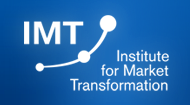
Posted by Willy Franzen on October 24, 2010. Jobs updated daily.
| Email Marketing Manager Columbus, OH | View |
| Market Development Manager - Lubricant Market Segment (Agriculture & Automotive) Columbus, OH | View |
| Director, Practice Marketing Columbus, OH | View |
| Solution Architect - Digital Transformation (Remote) Columbus, OH | View |
| Marketing Coordinator Columbus, OH | View |
| Energy Efficiency Senior Project Manager (Hybrid/Remote - CA) Columbus, OH | View |
| Research Interns-2 Columbus, OH | View |
| Remote Product Manager: Legal & Policy Transformation Columbus, OH | View |
| Senior Manager Market Access - New Product Planning, Princeton, NJ - Hybrid Columbus, OH | View |
| Remote: Primary Research Insights & GTM Analyst Columbus, OH | View |
I firmly believe that most situations can be made better by allowing markets to operate freely; however, I’m well aware that there are also plenty of examples of market failure. The ultimate examples are any markets that have a direct, or even indirect, effect on the environment. The reason for this is that pollution is a cost that is usually distributed across large groups of people over a very long time, so they don’t realize that they’re getting a raw deal (or in some instances they may think that they’re getting a worse deal than they are). Nobody is ever in favor of pollution, yet we constantly face tradeoffs. The Institute for Market Transformation is a Washington, DC based non-profit organization that is pursuing “various strategies for the creation of permanent, self-sustaining success of energy-efficient technologies in the marketplace.” Instead of fighting the market, they want to use it in combination with new technology to help us make the right choices when it comes to the environment.
The Institute for Market Transformation operates in a number of areas including “technical and market research, educational outreach, and the crafting of building codes and other policy and program initiatives.” Two of the main levers that the IMT uses to transform markets are stimulation of consumer demand and stimulation of supplier innovation. Another key focus of the IMT is strengthening “linkages among property value, green building and energy performance.” Once again, that gives people an incentive to do the right thing. If you’re intrigued by the philosophy behind the Institute for Market Transformation, they you’ll probably want to take a look at their Jobs page. They currently have two positions posted: Program Manager: Energy Efficiency Finance Policy and Program Manager: Green Leasing and Federal Buildings. It’s kind of unclear how much experience they want for each, but the lack of specifics should mean that it’s worth a try.
Links to Help You Begin Your Research
What do you know about the Institute for Market Transformation?
We've identified Institute for Market Transformation as having career opportunities in the following categories:
You can blame people or institutions but please don’t say the market failed:
Try reading Markets Don’t Fail by Brian Simpson:
http://www.amazon.com/Markets-Dont-Fail-Brian-Simpson/dp/073911364X/ref=sr_1_1?m=ATVPDKIKX0DER&ie=UTF8&qid=1287940048&sr=8-1
I’m a big proponent of free market ideology, but I’m still not convinced that markets don’t fail. It’s certainly possible to create markets that properly deal with the externalities of pollution, but those markets don’t seem to form organically like most markets do. I guess I see that as a market failure.